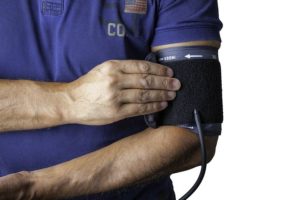Does chronic kidney disease usually get worse?
The short answer is .. yes, sometimes. If can also stabilise. It does not often get better
But we don’t really know why. It is true that CKD tends to get progressively worse.
The outlook is very variable though. Many patients with mild-moderate CKD (CKD1-3A) stabilise (especially with correct medication and lifestyle change) and kidney function stays at roughly the same level.
Unfortunately many patients with CKD4 progress to CKD5 and may need dialysis and/or a kidney transplant. CKD3B is harder to predict.
But there are things you can do to slow it down and help prevent kidney failure (see below).
What does progression mean?
For some reason, once kidneys have been damaged, they may continue to get worse (‘progress’) over months and years, even long after the disease that caused the damage has gone.
This is more likely if you have high blood pressure, and if there is much protein leaking into the urine. Stage 5 CKD (kidney failure, or end-stage renal disease, or ESRD) is a possibility in some patients but not inevitable.

Can end-stage renal disease be prevented?
Sometimes it can – and even if it cannot be prevented, it can often be delayed by many years. This involves careful attention to the following 5 things.
How? 5 things you can do
1. Make sure CKD is detected early and a clear cause (diagnosis) is identified. Why?
“CKD is not a diagnosis. It is a syndrome (group of diseases) that has causes (diagnoses)”
So if your GP is not certain what it is, and what to do, encourage them to refer you to a nephrologist (hospital kidney doctor). Make sure you have a kidney ultrasound as well. After that, have regular blood tests and follow up.
“Don’t allow yourself to be discharged unless things are stable and the risk of kidney failure is low”
2. Keep your blood pressure down
Proper control of high blood pressure is often the most effective way of slowing the progression of CKD.
“Keep your blood pressure 130/80 mm Hg or below, all the time”
The best way to attain good control is to monitor your blood pressure regularly at home, and maintain a chart. This will help your doctor immensely, so they can adjust your blood pressure medication accordingly.
In terms of tablets, for many patients, the combination of a full dose of BP medication called an ACE (or ARB) and an SGLTi is very effective. Examples include Ramipril (ACE) and Dapagliflozin (SGLTi). 1-3 additional BP tablets may be necessary as well.
3. Treat other chronic medical conditions
These include diabetes and heart failure. See hospital specialists for these conditions as well, if your GP is not sure what to do.
4. Avoid illnesses that can cause AKI (rapid onset kidney failure)
This is because they can further damage the kidneys, and may even lead to temporary (or permanent dialysis).
“In CKD, the kidneys are very sensitive to other illnesses”
.. especially ones that cause hypotension (low blood pressure), dehydration, urinary tract obstruction (e.g. prostate problems in men), infection and sepsis, and drugs toxic to the kidneys. These all need to be promptly identified and treated, as all can affect kidney function and/or cause AKI.
5. Keep your weight down if you are overweight or obese
Also you may find fluid restriction and/or ‘kidney-friendly’ diets (e.g. low in sodium, potassium, phosphate or protein) may make you feel better.
Summary
Does chronic kidney disease get worse? Yes, sometimes. But there is a lot you can do to help yourself. We hope this has been helpful.
Last Reviewed on 13 April 2024
